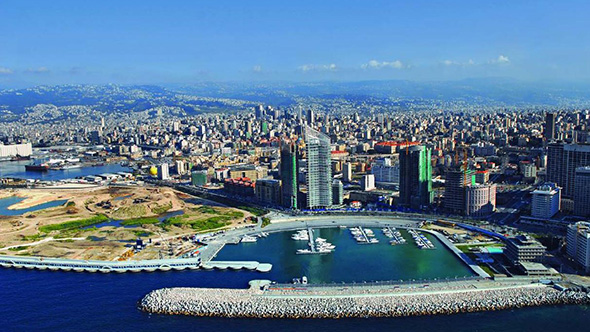Beirut: Property good investment for the well-off
The city that has had so many comebacks that it never really hit the mats and stayed down. Now a recent report by Savills World Research, Candy & Candy and Deutsche Asset & Wealth Management highlights notes that the Levantine capital is once again up and coming city and a prime investment for wealthy real estate investors.

Beirut: Property good investment for the well-off
BEIRUT — The city that has had so many comebacks that it never really hit the mats and stayed down. Now a recent report by Savills World Research, Candy & Candy and Deutsche Asset & Wealth Management highlights notes that the Levantine capital is once again up and coming city and a prime investment for wealthy real estate investors.
According to Yolande Barnes, director of Savills World research, amid all its traffic, power, and other dysfunctions — including a million-person tide of Syrian refugees — Beirut is still on the map of younger world travelers for its culture, nightlife and youthful, hip population. Adding to this, Barnes noted, that by international standards Beirut real estate still look very inexpensive.
“We have identified 12 cities around the globe that do’ have world city status but which we see as rising second tier cities with the potential to show strong residential property price growth as global investors seek alternative locations.”
“Few of our rising stars here have ever fallen as low as Beirut did during the Lebanese Civil War of the 1970s and 1980s. Since then, the city’s story has been one of reconstruction and repair that has left it looking surprisingly strong in the Middle East region. It is an outward-looking Mediterranean coastal city with a strong culture and nightlife, attracting a young population,” said Barnes.
“Beirut is a regional financial center and has as strong service sector with potential to become more internationally renowned. Real estate in the city still looks very cheap by international standards so there is considerable growth potential.”
The report said that two-bedroom flats ranging from $180,000 to $500,000, based on the location, and the fact the city is also a regional financial hub makes for a potential good return on investment for rich foreign investors.
“We have identified 12 cities around the globe that do’ have world city status but which we see as rising second tier cities with the potential to show strong residential property price growth as global investors seek alternative locations,” the Savills report read. “They range from well-known and very well established cities such as Melbourne, Australia to little known but interesting centers in developing economies such as Chennai, India that have a high number of ultra-high net-worth residents.”
In addition to Beirut, the Savills list included: Cape Town, Chennai, Chicago, Dublin in Ireland, Istanbul, Jakarta, Lagos, Melbourne, Miami, Panama City in Panama, and Tel Aviv.
The Beirut Daily Star, the country’s top English language newspaper, reported that Nicholas Chammas, the president of the Beirut Traders Association, a powerful business lobby, saw many good points made by the Savills report.
He called, however, for a comprehensive report that included more information.
“Once again, the investors have put Lebanon on the radar screen. But I would have preferred to see a comprehensive report that covers all aspects of life in Lebanon,” Chammas told the Daily star, suggesting investors need overall information on the business climate, cost of living, skill levels of workers, quality of life, and also a proud point for Beirut – the number of top-notch universities.
Asoka Wöhrmann, Deutsche Asset &Wealth Management’s Co-Chief Investment Officer, believes that property is moving into the investment world’s mainstream: “People are looking for stable investments and real estate looks good from a total return perspective.” Wöhrmann credits recent under-performance in fixed income markets with the move of real estate to center stage: “Equities are performing well, but people are still cautious, and fixed income does not look as compelling any more. Real estate is looking far better from a volatility and risk reward perspective.”